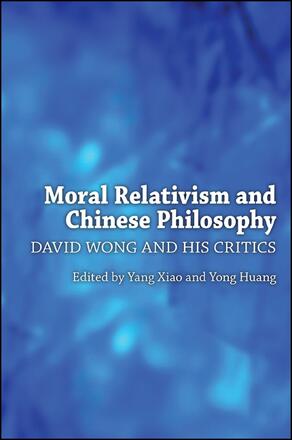
Moral Relativism and Chinese Philosophy
David Wong and His Critics
Alternative formats available from:
A wide ranging consideration of the work of contemporary ethicist David Wong.
Description
Original, influential, and often controversial, ethicist David Wong defends forms of moral relativism. His 1984 Moral Relativity was a study of this concept, and his 2006 Natural Moralities presented a new and sophisticated account of it. Wong's vision is of a pluralistic moral relativism; he does not defend all forms of relativism but evaluates what moralities may be true. His singular philosophy reflects his deep knowledge of Confucian and Daoist thought.
In this book, moral philosophers and scholars of Chinese thought debate ideas central to Wong's work and Wong responds to them. The discussion ranges widely, including exploring Wong's thought on naturalism, criteria for moralities, the principle of charity, moral authority, and the concept of community, and looking at his readings of Xunzi and Zhuangzi. Wong's nuanced and forceful responses clarify and develop further arguments in his work. These engaging and critical exchanges between Wong and his critics illuminate not only Wong's thought, but also contemporary ethical theory and Chinese philosophy.
Yang Xiao is Associate Professor of Philosophy at Kenyon College. Yong Huang is Professor of Philosophy at the Chinese University of Hong Kong. He is the author of Religious Goodness and Political Rightness: Beyond the Liberal-Communitarian Debate and Confucius: A Guide for the Perplexed and editor of Rorty, Pragmatism, and Confucianism: With Responses by Richard Rorty, also published by SUNY Press.